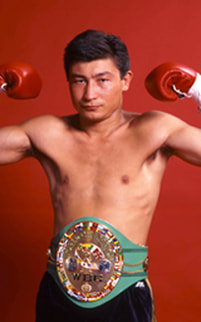 By Daniel Sharman (dansharman17@gmail.com) The lineal or 'World' championship has for decades held a special place in the hearts and minds of ardent boxing fans around the globe. Whilst major alphabet titles in the form of belts are both overly ubiquitous and often held by fighters without any sort of legitimate claim to supremacy within a weight class, the lineal champion is the fighter who can legitimately claim to be the best of the best, the true number one fighter within a given division. For a boxer to acquire the lineal status is for him to reach the pinnacle of the sport within his era, and serves as a notice to all other boxers in a weight class that this is the man to beat. However, in recent times, largely due to Tyson Fury's vocal promotion of his own status as lineal heavyweight champion, it has become fairly commonplace to see boxing 'fans' criticise the very notion of a lineal champion, and label it as 'imaginary', 'made-up', and so on. Whilst these criticisms are usually made by those who are either uninformed, unable to understand the concept, or simply trolling, some more distinguished voices have spoken dismissively of the idea of a lineal championship (such as, for example, Thomas Hauser). Thus, in this two part series, I will address the two main criticisms levelled against the lineal championship, both of which I believe to be mistaken. This will also act as a follow up article to my previous one regarding the possibility of Naoya Inoue securing the lineal bantamweight title. 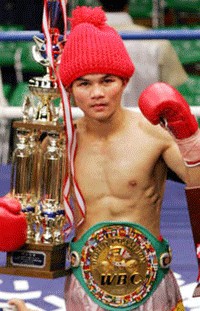 1.) "The lineal championship doesn't exist." This is the main criticism directed towards the lineal championship. The criticism usually goes as follows: as there is no belt to be won for the lineal title, and no organisational rules to adhere to (e.g. enforced mandatory challenges), the lineal title isn't real; it's just 'made-up'. This criticism gets the situation entirely the wrong way round. It is not the lineal title which is invented, but rather the championship titles proffered by various sanctioning bodies. It is the various alphabets titles which are created or made-up, whereas the lineal title is the real championship, existing separate to the dictates of any group of individuals who decide to call themselves a 'sanctioning' or 'governing' body. Fundamentally, the lineal championship is not the same as a championship which is sanctioned and controlled by a governing body (e.g. the WBC); the lineal title is not owned by any specific organisation or cabal of individuals, and was not created by them. Any group of people can get together, form an organisation, and decide to start giving out 'championships': this is what happened with the WBA and WBC, followed by the IBF, then WBO, and now the IBO. These titles only have legitimacy insofar as people are willing to recognise them as valuable (for instance, at one point the WBO was seen as illegitimate). By contrast, the lineal title is by definition legitimate: it is no more and no less than a designation which is attached to the best fighter within a given weight division, and a boxer's possessing the lineal championship amounts simply to the fact that others, both boxers and non-boxers alike, recognise that fighter's status as the best within their weight division. Whereas the legitimacy of sanctioning body titles is subjective, or dependent on opinion, the legitimacy of the lineal championship is objective, or dependent on fact. The word 'champion' itself implies the existence of a world or lineal champion: a champion means one who has shown his superiority to all others in some matter decided by public contest or competition, in this case, boxing. Thus, it is incoherent to maintain that there can be any more than one champion in a given weight class (let alone four or more). Indeed, the major sanctioning bodies, in mutually recognising one another's titles, themselves thereby tacitly conceding that the person whom they crown 'champion' is not really the champion, the true number one. And, it especially ridiculous that those fans who happily recognise all four major titles will at the same time denigrate the lineal championship; they are willing to accept a situation which is contradictory in itself, whilst denying the existence of something far more coherent. Now, as regards the lineal championship, a boxer's holding the lineal status continues up until such point as he loses it to another fighter (who then succeeds him as the lineal champion), or he permanently retires (at least from the weight class in which he possessed the title). And the way a vacant lineal championship is filled is simple: the two boxers recognised as the best in the division square off against one another, and whoever wins assumes the new title. 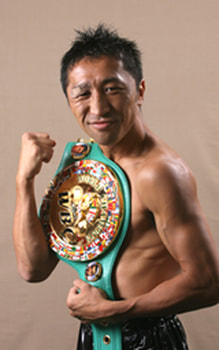 It is almost universally agreed that there are too many titles in boxing, but most fans of the sport seem to have lost track of what championship titles are actually intended to be. Each governing body, at least in theory, intends their championship to be held by the genuine number one in a given division; when a fighter wins their championship, they are given a belt as an outward symbol or manifestation of their status as champion. It is not the belt itself which is important, and it is only supposed to outwardly show the important thing: that the person with the belt around their waist is the true champion, the genuine number one. The belt follows the championship, not the other way round. It seems that fans, in our materially obsessed age, have got the order of things muddled. Many fans act as if the important thing is the physical act of holding a belt, and that, by holding the belt, a boxer thereby acquires the status of champion. This is all wrong: holding a belt merely indicates in a visible and aesthetically pleasing way that a given fighter is champion, no more, no less. By thinking that holding a belt makes one a champion, fans have fostered an environment in which sanctioning bodies are able to endlessly proliferate world titles on no greater basis than their ability to physically proliferate the belts themselves (note, for instance, that the WBA's 'regular' and 'super' belts are visually indistinguishable). To recap, the lineal championship exists. It is a status or designation which is held by the best boxer in a weight class. Whilst there is no physical belt which a boxer receives to represent his status as lineal champion, he can nevertheless hold that status, and can only lose it through either retiring or being beaten by another fighter. The lineal champion is the real champion in a weight class. Unlike the championship titles of sanctioning bodies, the lineal title was not invented or contrived by an organisation or group of individuals, and its legitimacy is not dependent on people conferring legitimacy upon it; it is simply the designation given to the best fighter within a weight class, and exists above and beyond the whims of any self-purported sanctioning body whom the public may be willing to accept. Coming up in Part 2: Responding to "The lineage has been broken, and so is no longer valid!" (Images of Yuri Arbachakov and Daisuke Naito courtesy of http://jpba.gr.jp/, Image of Pongsaklek Wonjongkam courtesy of Thairec)
0 Comments
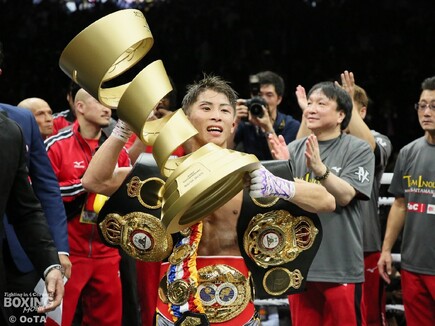 By Daniel Sharman (dansharman17@gmail.com) News came through earlier today that the WBC have officially rescinded Luis Nery's status as mandatory challenger to bantamweight champion Nordine Oubaali. Until recently, a decision made at the WBC's 2019 annual convention had put Nery in line to get a shot at whoever was holding the green belt following a consolidation bout between Oubaali and interim titlist Takuma Inoue. Although assured a position as mandatory, Nery put himself forward to fight a final eliminator against recently dethroned, former IBF bantamweight champion, Emmanuel Rodriguez. An issue arose when Nery scaled 1lb over the 118lb bantamweight limit, missing weight for at least the fourth time in his career (the most infamous occasion being when Nery weighed in at an egregious 123lb during his 2018 rematch with Shinsuke Yamanaka). However, rather than attempt to lose the weight (presumably because Nery felt he could go no lighter), Nery and his team made the questionable move of offering $25,000 worth of compensation to Rodriguez for the bout to go ahead. In an act of great integrity, Rodriguez refused the offer, and the bout was cancelled, with neither fighter receiving any payment whatsoever. This courageous act of Rodriguez's seems to have been the straw which has broken the proverbial camel's back, and has set in motion a chain of events which might finally see Nery properly reprimanded for his continued misdemeanours and lack of professionalism. It seems that this latest incident has lead the WBC to finally withdraw its sustained support for Nery as a bantamweight: not only has the WBC rescinded Nery's mandatory status, the WBC's president Mauricio Sulaiman has gone a far to declare that “[Nery] can no longer campaign at bantamweight”, and that “it is [the WBC's] recommendation that he fights at (122 pounds) or even featherweight.” Whilst this turn of events is somewhat surprising given the fact that the WBC have seemingly carried water for Nery over the past couple of years, it seems that Nery's continued errors are becoming a source of embarrassment even for them. Nevertheless, it is a very welcome outcome, and the just one given the circumstances. More importantly, this occurrence could have a number of interesting ramifications for the bantamweight division. Whilst his being stripped of his mandatory position does not necessarily mean Nery will move up in weight, it is likely given that the only other sanctioning body he holds a ranking within is the WBA (no. 5), and it wouldn't be surprising if the WBC installed him high up in their rankings at super bantamweight, especially given that Rigondeaux, who most recently won a WBC final eliminator at super bantamweight, is moving down to fight for the vacant WBA regular bantamweight title this December. In this connection, it should be seriously noted that Rigondeaux, like Nery, is a PBC fighter, and it would be entirely unsurprising if Nery in his next fight challenged Rigondeaux for that title. The WBA has shown a complete willingness to facilitate PBC's isolationism through the use of its 'regular' titles, allowing exclusively in-house fights to have the veneer of being 'world championship' bouts. However, putting these issues to one side, and assuming that Nery will be exiting the bantam division due to an inability to make weight, let us assess the situation how his absence may affect the issue of the vacant bantamweight lineal or 'world' championship, that is, the fighter who can truly claim to be the best in a given weight class. In the last year of so, the general consensus has formed that Naoya Inoue and Luis Nery respectively represent no. 1 and no. 2 in the bantamweight division. For instance (current as of 28/11/2019): The Ring has Inoue as their champion, and Nery as their no. 1 contender; Boxing Monthly has Inoue at 1, Nery at 2; TBRB has Inoue at 1, Nery at 2; ESPN has Inoue at 1, Nery at 2; Boxrec has Inoue at 1 (650 pts), Nery at 2 (443.6 pts). This has lead to the formation of a further consensus that in order for a new lineal to be crowned, Inoue and Nery must face off against one another. 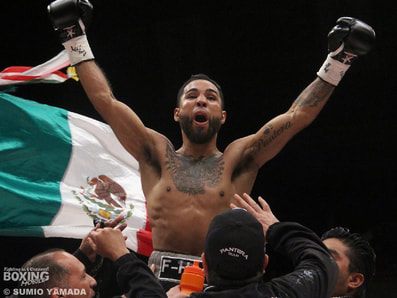 This is problematic for at least two reasons. First, Nery fights under the banner of American promotional outfit PBC, whereas Inoue has recently signed a co-promotional deal with Bob Arum's Top Rank. As mentioned above, the PBC has voiced an express desire to be an isolated 'island' putting on only in-house fights, it was a serious question as to whether a fight between Inoue and Nery could ever be made, even if both fighters hypothetically wanted it (see, for comparison, the situation between Top Rank's Crawford and PBC's Errol Spence). Second, as a consequence of his various misdemeanours in his fights against Yamanaka, Nery is serving a lifetime ban from the Japanese Boxing Commission. This would have prevented Nery fighting Inoue in Japan, and, more importantly, may have damaged Inoue's reputation if he was seen to be facilitating a fighter who had been legitimately banned by the commission of his own country. However, given this recent news, we can now speculate as to how a fight for the lineal title may come about in Nery's absence. It is undeniable, and agreed by all, that Inoue holds the spot of number one bantamweight; the real question is who is deserving of the number two spot in the absence of Nery, and who would have to face Inoue in order to crown a new lineal champion. There are two obvious candidates: WBC champion Nordine Oubaali, and WBO champion Zolani Tete. Both champions are undoubtedly within the top five at bantamweight, and it is likely that a consensus will form around one of them as being deserving of the number two spot. As it currently stands (again, as of 28/11/2019): The Ring ranks Tete as its no. 2 contender, with Oubaali at no. 4; Boxing Monthly has Oubaali at 4, and Tete at 7; TBRB has Oubaali at 3, and Tete at 4; ESPN has Oubaali at 3, and Tete at 4; Boxrec has Oubaali at 3 (372.4 pts) and Tete listed as inactive (343.3 pts prior to his injury). Whilst these rankings are obviously not the same as a general consensus, they are all more or less respected within the boxing community (except perhaps Boxrec), and they all seem to be converging on roughly the same rank ordering. Indeed, further light will be shed on the situation after this Saturday's bout between Tete and interim WBO titlist John Riel Casimero: how Tete looks in that performance should go a long way to helping determine whether he deserves to be placed ahead of Oubaali or not. What's more, a very interesting scenario can be envisaged. If Tete is successful this Saturday, both he and Oubaali will have satisfied their outstanding mandatory obligations. In theory, this leaves them both open to fight a WBO-WBC unification bout between each other in the first quarter of 2020, which would allow Inoue time to perhaps fight his own IBF mandatory (Michael Dasmarinas) as a coming out fight as part of his new Top Rank deal. This would hopefully achieve two things: it would help determine who was the superior fighter was between Tete and Oubaali, and it would set up a huge showdown with Inoue at a later date for the undisputed, lineal bantamweight championship. We can only dream! (Image courtesy of boxmob.jp) |
Guests!These articles are submitted by guest writers and sites. They aren't submitted by the usual folk behind Asian Boxing and don't fall in line with our editorial stance, giving a fresh view on various boxing issues from the Asian boxing scene. Archives
August 2021
Categories
All
|
 RSS Feed
RSS Feed
